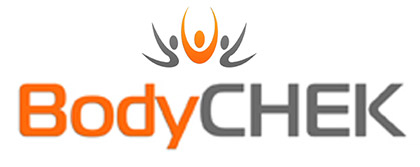There is a dogma in the health and fitness industries and amongst the general public and media that you have to perform lots of cardiovascular exercise to achieve health and/or weight loss.
However, this is not true. In fact, great benefits can be achieved with shorter duration higher intensity exercise. And in some instances, cardiovascular training can be detrimental to health.
Cardiovascular (also known as aerobic) training is exercise that can be done for longer durations without stopping. Any activity that can be done for longer than 1 minute without having to pause requires predominantly oxygen as fuel. The word aerobic means ‘with oxygen’.
After an exercise session is terminated, oxygen consumption (calories) decreases with time and returns to resting levels. The elevated oxygen consumption following exercise is termed EPOC (Excess Post-exercise Oxygen Consumption).
EPOC is influenced more by intensity than duration and consequently one minute of high intensity exercise can produce an equal or greater EPOC than twenty minutes of low-moderate intensity exercise.
By completing multiple minutes separated by rest from exercise, one is able to benefit from this elevated metabolism more than once. One study compared the one-minute bout of intense exercise with twenty minutes of moderate intensity exercise, it was discovered that only four one-minute bouts of intense exercise would be required to exceed the total oxygen consumption of a twenty-minute bout of moderate (60% maxHR) intensity exercise.
The research data showed that the one-minute bouts of intense stepping on the X-iser MachineTM used an average of 46.7 Cals/min compared to only 9.3 Cals/min for a twenty-minute bout of typical aerobic exercise.
A thorough review of the literature clearly demonstrates that the general population can obtain numerous health benefits, as much if not more, from high-intensity intermittent exercise as compared to “traditional aerobic” training.
Further, it is clear that there are significant misconceptions about the role of intensity and duration of exercise upon cardiovascular adaptation, energy expenditure, fat metabolism, and weight loss. Athletes may also benefit by substituting some low-moderate intensity training with high-intensity interval training to further improve adaptation to lactate production, while not diminishing their aerobic capacity. Further research is needed to elucidate the long term benefits of The Short Bout Exercise Program, however current knowledge suggests it to be a useful addition to exercise training.
In addition, when you perform cardiovascular exercise, you raise levels of Glucocorticoids, which are tissue destroying hormones. To maintain health and optimum weight you need to keep as much muscle tissue as possible. Therefore, excess cardiovascular exercise can lead to a reduction in muscle tissue, metabolic rate and overall health.
Ultimately, most of us need some resistance training, some cardiovascular training (high and or low intensity) to maximise fat loss. Our Lean & Lively Packages are tailored specifically for your needs and are the most in-depth and thorough exercise programmes you’ll find in the Regent’s Park area when it comes to weight loss. For more information on our Lean & Lively Programmes, please click here.
Until next time…
